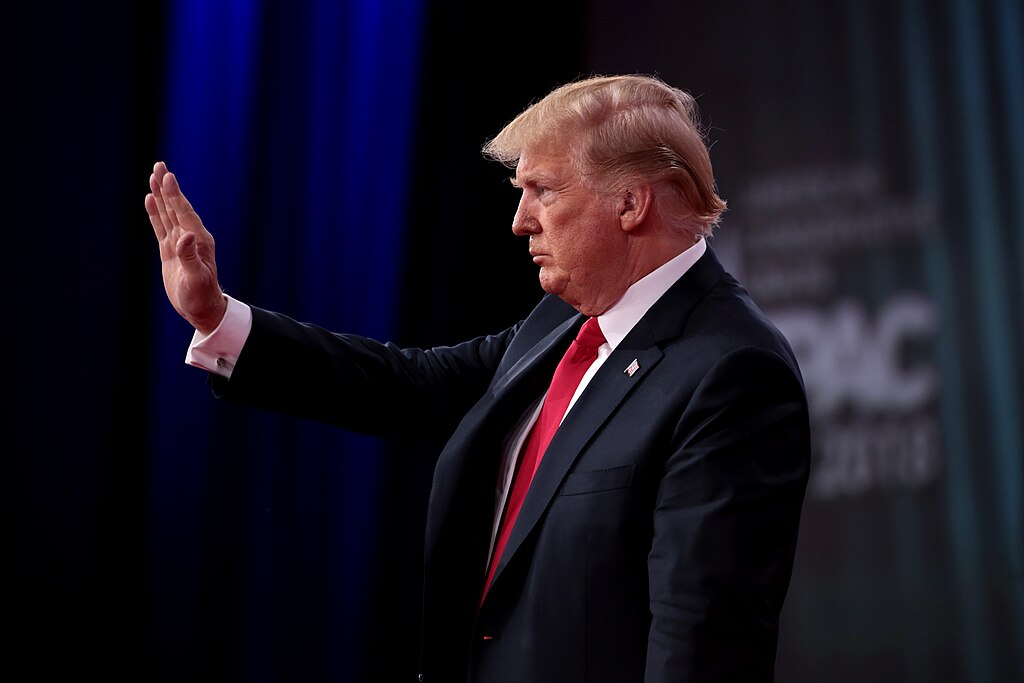As President Donald Trump prepares to begin his second term in January 2025, his administration is set to reinstate and expand travel restrictions targeting countries deemed high-risk for terrorism. This move has reignited debates over national security, immigration policy, and international relations.
Reinstatement and Expansion of Travel Ban
The original travel ban, implemented in 2017, restricted entry from several predominantly Muslim countries, including Iran, Libya, Somalia, Syria, and Yemen. Critics labeled it a "Muslim ban," a characterization the administration disputes. In 2020, additional countries were added to the list, such as Nigeria, Myanmar, Eritrea, Kyrgyzstan, Sudan, and Tanzania. The Supreme Court upheld the ban in 2018, affirming the president's authority to impose such restrictions.
In 2021, President Joe Biden revoked the travel bans, citing concerns over discrimination and their impact on U.S. foreign policy. However, President-elect Trump has announced plans to not only reinstate the previous bans but also expand them to include additional countries identified as security threats. While the specific nations have not been officially disclosed, reports suggest that Afghanistan, Iraq, and Tajikistan are under consideration due to concerns over their vetting processes and potential terrorist activities.
Rationale and Criticism
The administration argues that these measures are essential for national security, aiming to prevent individuals from regions with inadequate vetting procedures from entering the United States. Supporters contend that the expanded travel ban is a necessary step to protect American citizens from potential terrorist threats.
Conversely, critics argue that the travel bans are discriminatory and ineffective. Civil rights organizations, including the American Civil Liberties Union (ACLU), have condemned the policy, stating that it unfairly targets Muslim-majority countries and undermines America's commitment to diversity and inclusion. Legal challenges are anticipated, with opponents preparing to contest the expanded bans in court.
International Response
The proposed expansion has elicited strong reactions from the international community. Governments of the countries potentially affected have expressed concern over the implications for diplomatic relations and the impact on their citizens. Human rights organizations have also voiced opposition, arguing that such measures could exacerbate humanitarian crises by limiting avenues for asylum seekers and refugees.
Public Reaction
The announcement has sparked a flurry of responses on social media platforms:
-
@GlobalCitizen: "Expanding the travel ban is a step backward for international cooperation and human rights."
-
@SecurityFirst: "Protecting our borders is paramount. The expanded travel ban is a necessary measure."
-
@ImmigrationAdvocate: "This policy discriminates against entire nations and fuels xenophobia. We must stand against it."
Conclusion
President Trump's plan to reinstate and expand travel bans in 2025 has reignited a contentious debate over the balance between national security and civil liberties. As the administration moves forward with its policy, legal challenges and international scrutiny are expected to intensify, highlighting the complexities of implementing such measures in a globally connected world.



 Iran Detains U.S. Citizens Amid Escalating Conflict With the United States and Israel
Iran Detains U.S. Citizens Amid Escalating Conflict With the United States and Israel  EU Urges Maximum Restraint in Iran Conflict Amid Fears of Regional Escalation and Oil Supply Disruption
EU Urges Maximum Restraint in Iran Conflict Amid Fears of Regional Escalation and Oil Supply Disruption  U.S. Lawmakers Question Trump’s Iran Strategy After Joint U.S.-Israeli Strikes
U.S. Lawmakers Question Trump’s Iran Strategy After Joint U.S.-Israeli Strikes  Israel Strikes Hezbollah Targets in Lebanon After Missile and Drone Attacks
Israel Strikes Hezbollah Targets in Lebanon After Missile and Drone Attacks  Middle East Conflict Escalates After Khamenei’s Death as U.S., Israel and Iran Exchange Strikes
Middle East Conflict Escalates After Khamenei’s Death as U.S., Israel and Iran Exchange Strikes  Australia Rules Out Military Involvement in Iran Conflict as Middle East Tensions Escalate
Australia Rules Out Military Involvement in Iran Conflict as Middle East Tensions Escalate  Pentagon Downplays ‘Endless War’ Fears After U.S. Strikes on Iran Escalate Conflict
Pentagon Downplays ‘Endless War’ Fears After U.S. Strikes on Iran Escalate Conflict  Trump Says U.S. Combat Operations in Iran Will Continue Until Objectives Are Met
Trump Says U.S. Combat Operations in Iran Will Continue Until Objectives Are Met  Trump and Merz Meet at White House Amid Iran Strikes and Trade Tensions
Trump and Merz Meet at White House Amid Iran Strikes and Trade Tensions  Trump Says U.S.-UK Relationship Has Deteriorated After Starmer Hesitates on Iran Strikes
Trump Says U.S.-UK Relationship Has Deteriorated After Starmer Hesitates on Iran Strikes  Rubio Says U.S. Would Not Target School After Deadly Iran Strike Reports
Rubio Says U.S. Would Not Target School After Deadly Iran Strike Reports  Trump Says U.S. Attacks on Iran Will Continue, Warns of More American Casualties
Trump Says U.S. Attacks on Iran Will Continue, Warns of More American Casualties  U.S.-Israel War on Iran Escalates as Gulf Conflict Disrupts Oil, Air Travel and Regional Security
U.S.-Israel War on Iran Escalates as Gulf Conflict Disrupts Oil, Air Travel and Regional Security  Why did Iran bomb Dubai? A Middle East expert explains the regional alliances at play
Why did Iran bomb Dubai? A Middle East expert explains the regional alliances at play  Marco Rubio to Brief Congress After U.S.-Israeli Strikes on Iran
Marco Rubio to Brief Congress After U.S.-Israeli Strikes on Iran  Melania Trump Chairs Historic U.N. Security Council Meeting on Children Amid Iran Conflict
Melania Trump Chairs Historic U.N. Security Council Meeting on Children Amid Iran Conflict  Zelenskiy Urges Change in Iran After U.S. and Israeli Strikes, Cites Drone Support for Russia
Zelenskiy Urges Change in Iran After U.S. and Israeli Strikes, Cites Drone Support for Russia 




























